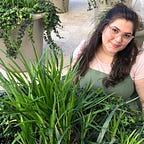Building Trust in Online Communities
As social media networks like Facebook continue to put more emphasis on the “social” aspect of social media, and group messaging apps grow in popularity, there’s been a tangible shift in the way we feel about being part of a larger conversation.
I remember when Facebook Groups first became popular — I was in high school and joined a group dedicated to fans of the Jonas Brothers (I am nothing if not a dedicated boy band fangirl). This was my first experience with not only the group dynamic of a closed social network, but also my first time participating in fan culture. It was a way to meet people with the same interests as me and build relationships across the whole world, basically. I have remained friends with many of the people in that group, from El Salvador, to Chicago, and many other places. I truly believe this is due to the power of closed social networks in fostering an environment that more closely aligns with the original social structure of online communities — to bring the world closer together, as Mark Zuckerberg said.
There are questions to be posed, however, on how our objectives have shifted and re-shifted over the years as developers and social media experts learn about social media ecosystems through trial and error. What is it about an open platform like Twitter or Instagram, or features like status updates on Facebook, that take away from the community experience of social media? What is it about closed networks that lends itself to be a space where harmful information and interactions can occur? They both have disadvantages, so is one better than the other?
One word comes to mind when I try navigating the answers: trust.
To what level do we place our trust in what we see on our timelines versus within our groups or group chats? Not only in what we see, but also what we post ourselves? We can use critical thinking and share reputable information, but it is not about the validity of our sources, but the trust we place in the content.
We can use this trust to our advantage, gaining validation from what we post ourselves, strengthening our belief in online communities being beneficial to the objective of togetherness. We can also subscribe what we see to confirmation bias, returning the favor and ultimately forming a stronger bond with those we connect with digitally. A large number of people who use Facebook groups depend on the feature to connect with communities that literally save their lives.
But trust can be misused. And users who do not actively work on developing their own digital literacy and helping others within their online communities to do the same, fall prey to the negative effects of these closed social networks. It is difficult for network administrators for a platform like Facebook or WhatsApp to moderate content that they do not have access to. In open platforms like Twitter, we see AI implemented to fact-check political figures, and there are often healthy debates in the comments section of an Instagram post. How can we be assured that private groups are not sharing false information which leads to a myriad of negative effects?
The bad news is we do not have all the answers yet. The good news is that humans can learn and adapt, and then design so that our systems adapt for us. There is no better way to convince someone of truth than to build trust first. So we can start there — leaning into the human aspects of closed community groups to foster trusting relationships with members so that when false and/or harmful information is spread, moderation can be exercised. This trust building in online communities in order to achieve a safer, more progressive social network environment can look like advocating for better digital literacy and empowerment among the people you already know, and doing so offline — making sure education curriculums are adequately teaching these concepts.
Dismantling and rebuilding what (or who) we put our trust in within a digital environment, and practicing fundamental critical thinking skills with an approach on literacy for online content can help us to have a healthier approach to how we participate in closed social networks.
